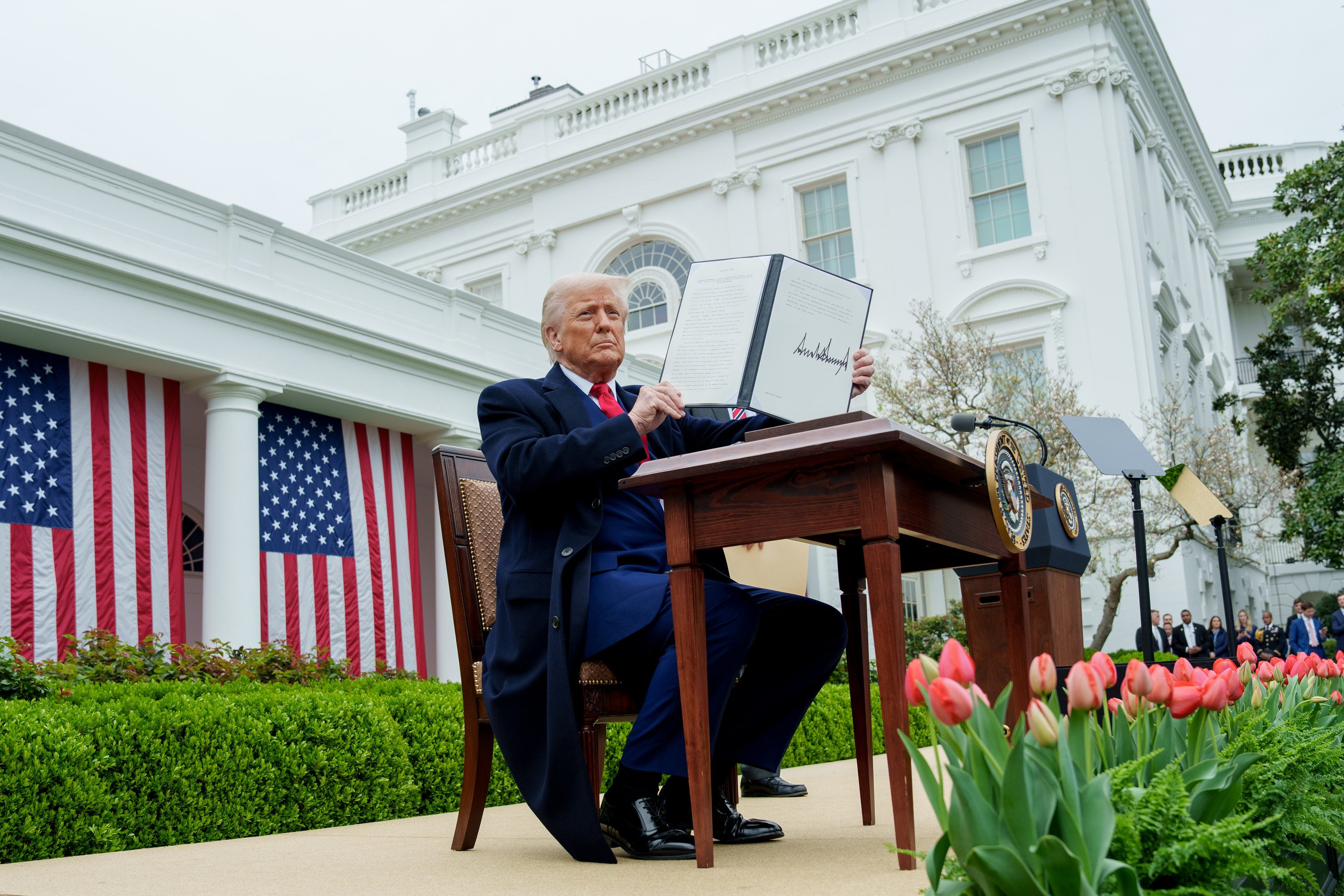After ATS Litigation: A FCPA for Human Rights?
The Supreme Court’s recent decision in Jesner v. Arab Bank, PLC further restricts federal private litigation to vindicate international human rights law, perhaps to a vanishing point. In retrospect, even Sosa v. Alvarez-Machain’s guarded endorsement of such lawsuits seems exceptional. Both Kiobel v.
Published by The Lawfare Institute
in Cooperation With

The Supreme Court’s recent decision in Jesner v. Arab Bank, PLC further restricts federal private litigation to vindicate international human rights law, perhaps to a vanishing point. In retrospect, even Sosa v. Alvarez-Machain’s guarded endorsement of such lawsuits seems exceptional. Both Kiobel v. Royal Dutch Petroleum and Jesner recognized the tension in Sosa’s effort to keep the federal courthouse door ajar, and have restored what the majority sees as the default against judicially-created federal private rights of action. It seems likely that private human rights litigation in federal courts will survive only when plaintiffs either fit within an existing statute, such as the Torture Victims Protection Act (which excludes corporate defendants) or the Anti-Terrorism Act (which only covers injury to U.S. nationals), or can both satisfy the requirements of diversity jurisdiction and find a basis in state or foreign law for their claims.
As a matter of legal process and constitutional separation of powers, this outcome seems unexceptional. Yet surely the United States should take a stand against corporate involvement in human rights violations by sanctioning firms that profit through abuse. Here we sketch out a better way for the United States to advance corporate human rights compliance abroad through legal sanctions, one that would not disrupt the proper allocation of lawmaking authority or privatize U.S. foreign relations. We outline an alternative approach to U.S. international human rights enforcement, inspired by the Foreign Corrupt Practices Act (FCPA).
Our proposal builds off of some of the principal characteristics of the FCPA. First, its application is generally limited to U.S. companies and to foreign companies that choose to list their stock on a U.S. stock exchange. Second, the FCPA does not include a private cause of action, but rather provides for a civil and criminal prohibition of foreign bribery, enforced by public authorities—the U.S. Department of Justice and the Securities and Exchange Commission (SEC). Third, the FCPA functions in tandem with the Securities Exchange Act’s disclosure and compliance obligations that discourage U.S. and U.S.-listed companies from engaging in foreign bribery and facilitate its detection and punishment.
This regulatory regime began as an administrative gloss on existing authority to regulate access to U.S. capital markets, a gloss that the FCPA then codified. Investors would want to know whether a firm’s success rested on merit or on unstable and odious foundations. For more than twenty years the United States acted alone, as other rich countries provided tax subsidies to companies who bribed foreign officials. Ultimately U.S. pressure, as well a change in international perceptions of public corruption, led to adoption of a multilateral treaty administered by the OECD. As Rachel Brewster has shown, the multilateral regime has encouraged robust enforcement by significant national authorities, including the United States, the United Kingdom, and (eventually and to a lesser extent) Australia, France, Germany and Switzerland. It works as well as any such regime in international law, even if public corruption persists and not all rich countries do all they should to comply with their obligations.
How could such an approach apply to human rights? The extraterritorial substantive prohibition is already codified in several federal criminal statutes. The genocide (18 U.S.C. § 1091), torture (18 U.S.C. § 2340A), and war crimes (18 U.S.C. § 2441) provisions criminalize these acts when committed abroad by U.S. nationals. The former two provisions also cover crimes abroad by persons who subsequently wind up in the United States. In theory, these statutes could give rise to corporate criminal responsibility pursuant to the strict respondeat superior doctrine applied by U.S. federal courts, under which “a corporation is liable for the criminal acts of its employees and agents done within the scope of their employment with the intent to benefit the corporation.”
At the moment, however, there are potential legal obstacles to holding U.S. corporations criminally liable for human rights violations abroad. First, as demonstrated by Alien Tort Statute (ATS) litigation, corporations normally do not engage directly in human rights violations, but instead collaborate with foreign actors such as paramilitaries and police. In these cases, they must be held liable, if at all, under an aiding and abetting standard. Federal criminal law appears to impose a purpose requirement, which has proved difficult to meet in ATS cases alleging corporate complicity in human rights violations abroad. Second, there is some question whether the criminal provisions reach U.S. companies abroad. Finally, unlike the FCPA foreign bribery prohibition, these statutes do not reach foreign corporations whose shares are listed on U.S. securities exchanges.
Thus, legislation is needed to make our FCPA-inspired approach effective. Mirroring the FCPA’s reach, the new regime would have to cover corporations and other legal persons organized under U.S. law as well as foreign companies listed on U.S. exchanges. The “aiding and abetting” standard poses a thornier problem as it seems both unrealistic and undesirable to impose full criminal liability for the worst international crimes based on mere knowledge. On the other hand, requiring a purpose to bring about the abuses might make the prohibition toothless. We propose enacting a separate prohibition on knowingly assisting the commission of the relevant crimes for a business purpose. In line with the FCPA template, this regime would not include a private cause of action, but instead would rely on the Department of Justice and the SEC for enforcement. These agencies could impose administrative, civil and criminal sanctions modeled on those available for FCPA violations, including disgorgement of profits obtained through acts that violate international crimes that have been codified in U.S. criminal law. Like the FCPA, this regime would sanction profit-motivated acts that violate the legislative standard of conduct.
Similarly, our proposed regime would require firms that access U.S. public capital markets to disclose their involvement in human rights violations and to take active measures to discover and discourage acts by their employees, agents, and business partners that bring about violations of international human rights law. One of the great successes of the FCPA has been to encourage multinational companies to invest in a compliance culture, one where employees understand that becoming entangled in wrongful behavior will disrupt, rather than advance, their careers. It does so by imposing strict liability on firms that do not accurately account for their business operations and fail to develop effective systems to ensure that their accounts are accurate. This model easily can extend to human rights compliance.
Another comparison with the FCPA deserves mention. Neither U.S. law nor the international regime forbids companies from doing business in parts of the world where corruption is rife. It permits engagement in places where officials expect and demand bribes, as long companies make clear that they will not participate in corruption and live up to that standard. There is much to be said for allowing companies to do business in these countries if they can do so in a way that creates the conditions for a prosperity that may undermine civil strife and authoritarian rule. Our regime would not force firms to stay away from these places, so long as the firm actively and successfully avoids entanglement in atrocities that rise to the level of violations of international human rights law. Moreover, it leaves it to U.S. officials--rather than activist litigants who might see anything undertaken by multinational corporations as suspect--to sort out the line between desirable engagement and unacceptable complicity.
Our proposal has several benefits relative to the ATS regime. Because it is premised on the gravest international crimes as they are defined in federal statutes, it would not require U.S. courts to divine the existence and elements of alleged crimes from unclear and often contradictory international treaties and precedents. It would avoid exporting the pathologies of U.S. class action litigation under the guise of advancing human rights abroad. It would greatly reduce the risk of clashes with foreign governments, because U.S. reach would be limited to its own companies and those that affirmatively choose to access U.S. financial markets. Because cases would be initiated by officials within the executive branch, their foreign policy implications could properly be considered as part of the overall exercise of prosecutorial or administrative discretion. Our proposal would provide incentives for multinational corporations to improve their oversight of the human rights implications of their foreign activities through more effective compliance programs. Like the FCPA, it would set an example for other countries to imitate the U.S. approach--both because of its normative attractiveness and to preempt U.S. prosecutions of their U.S.-listed multinationals. It could even serve as a template for an international regime, as the FCPA did.
Some may fear that excluding private litigation would make our proposed regime toothless. This point, however, discounts how aggressive the Department of Justice and the SEC have been in enforcing the FCPA in the past decades, through prosecutions that have yielded billions of dollars in fines. Beyond the FCPA, federal criminal prosecutors have brought numerous cases against major foreign banks despite their governments’ protests, imposing tens of billions of dollars in fines and far-reaching structural remedies. There is no reason to think that federal prosecutors would recoil from prosecution in meritorious human rights cases. At the same time, they would likely focus on cases where the violations are egregious, the evidence is most probative, and the surrounding circumstances suggest that prosecution could contribute positively to ameliorating the situation. Nor would the absence of a private cause of action necessarily deprive victims of compensation. In certain cases, federal law may allow them to recover from the defendant following prosecution.
We do not pretend that this will be come about quickly or completely. The current climate in Washington does not make it easy to get Congress to pass regulatory innovation of this sort. Some might argue that any new burden will discourage foreign firms from listing in the United States, although the history of FCPA regulation undermines that argument. But the Supreme Court, we think, has spoken: The future of U.S. human rights enforcement rests with Congress, not judicial norm entrepreneurship. If we want Congress to act, it is better to suggest a path that focuses on corporate incentives, limits the rents and other transaction costs associated with private enforcement, and requires U.S. government lawyers to own the problem. As debates over the best response to Jesner proceed, we hope that our solution will emerge as the best available option.






